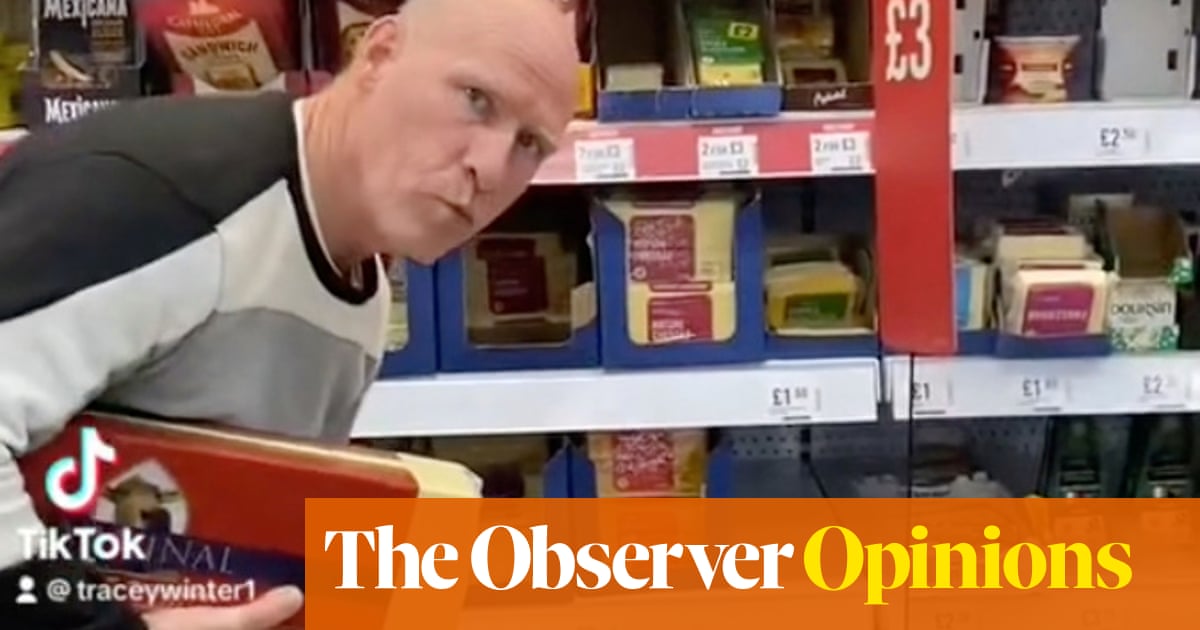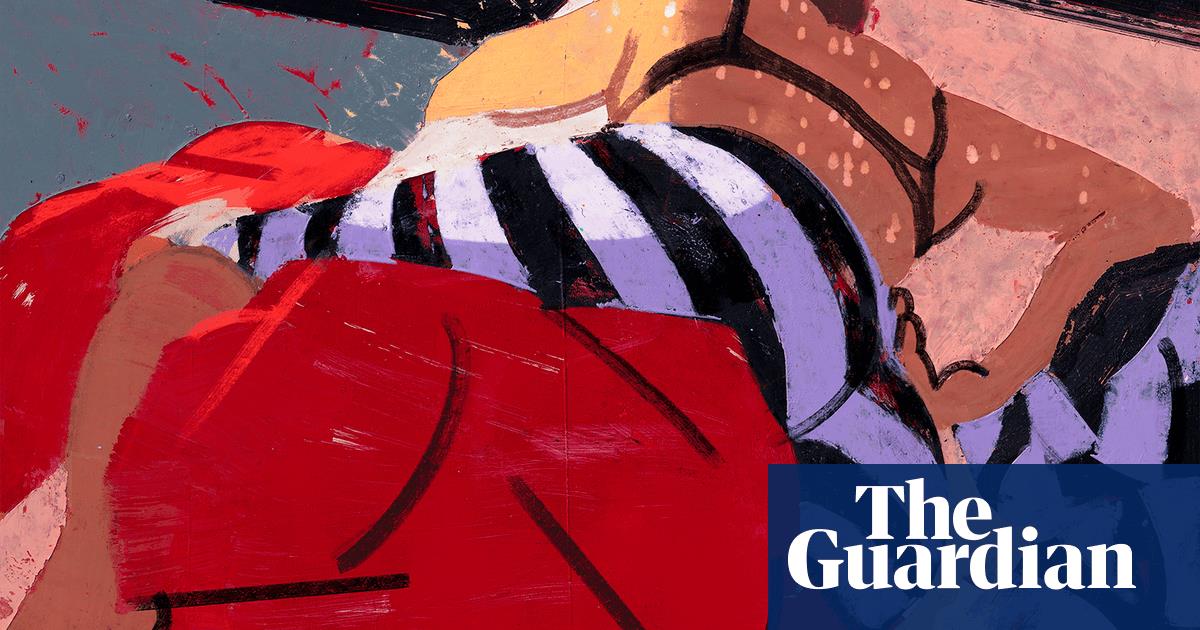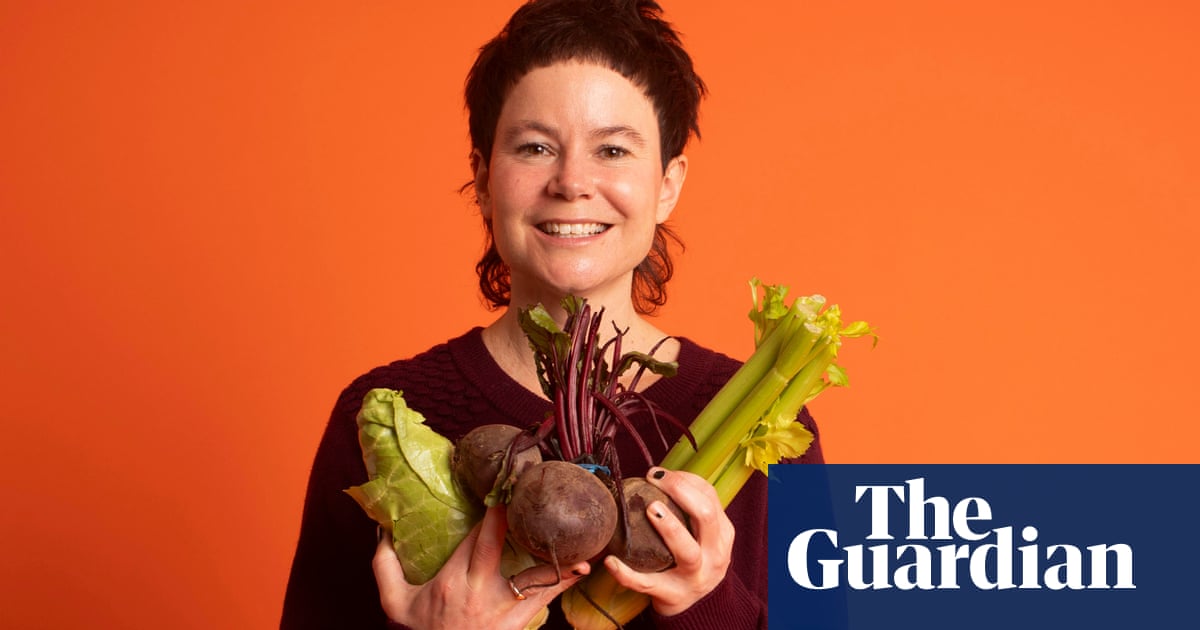
For the vast majority of human history, it has been impossible for anyone – no matter their wealth or status – to watch a video of a man who eats entire blocks of cheese followed by a video of a woman who dresses like Dr Nick Riviera from The Simpsons.
I’ve done this – I have done what my ancestors could never have dared to dream – thanks to TikTok. The video-sharing app needs no introduction, because you’ve undoubtedly already read endless scaremongering headlines claiming it’s about to destroy us all.
Last week the London mayor, Sadiq Khan, blamed the app for the “Oxford Circus JD Robbery”. And this summer alone, doctors, parents, police officers and “foot experts” have slammed TikTok in news articles, blaming the app for inciting dangerous behaviour such as pranking, dieting and stepping out of high heels in a weird way. Half of UK children aged between three and 17 use TikTok, and we can and should cast a critical eye over the content that they consume there.
Still, a culture of fearmongering means that stories often get overblown. In July, digital news outlets erroneously reported that four people had died because of a TikTok trend that encouraged people to jump out of boats. The story turned out to be a hoax.
As a journalist who writes about society and the internet, I’m the first to admit that TikTok has its faults – I worry about the privacy of children who are filmed for “cute” content, dislike the beauty filters plastered on people’s faces, and can’t promise you that the whole thing isn’t a covert Chinese spy op. But I also think that TikTok is the most marvellous app I’ve ever had the good fortune to click on. It is a diverse, eye-opening, heart-wrenching and mind-bending catalogue of human experience. It is completely full of life.
I’m not just talking about the #cheeseking – although I am genuinely grateful (pun always intended) that I now know about Mark, a man who has eaten a block of cheese every night for 25 years. I’m talking about the fearlessly bearded women who have shared their experiences of polycystic ovary syndrome (PCOS) on the app. I’m talking about the Appalachian homesteader who shows me a glimpse of a quieter, gentler life. And then there’s the mother who regularly gets tricked into taking her autistic son to his favourite supermarket, laughing lovingly as she chases him.
It can be worrying to read that US teens spend 99 minutes a day on TikTok – at least until you really question what they’re watching there. I have learned more things on TikTok in 10 minutes than I could ever have learned in a lifetime in a single other spot. Where else but TikTok could I have found out that gen Z circus clowns exist, and there’s a man who deliberately lives as though it’s the 1990s, plus a woman who runs a teddy bear adoption agency, finding new homes for old bears?
It takes a very specific type of person to thrive on Instagram or Twitter – to be crude, one app is for beauty and the other for brains (or at least, people who think they’re brainy). This isn’t the case on TikTok. People from every background have risen to prominence via the app, which provides the viewer with endless windows into other people’s lives. With one flick of my thumb, I could be watching the graduation of prestigious Norland nannies (1.1m views); with another, I could learn how a homeless teen cooks in public parks (2.2m views).
TikTok does serious too. After all, according to Ofcom, it is the most popular news source for 12- to 15-year-olds. BBC News (despite advising staff to delete the app from company phones) is there, so too the New York Times, the Daily Mail and indeed the Guardian. And a gamut of scientists, activists and users offer ingenious and informative takes on politics, global warming, wealth inequality and any major news story you can mention. While these takes might be quick, the “BookTok” influencers are driving fiction sales and buyers to bricks’n’mortar book stores. It’s wrong to characterise users’ attention as shallow or short.
It has become a quick and easy trope to blame TikTok for eating disorders, riots or people jumping off boats – but the truth is people have always done these things and always will. Blaming TikTok for society’s ills reminds me of past moral panics against TV, video games, and the Sony Walkman (which critics in 1979 claimed was inherently antisocial). TikTok is at its core a young person’s app (only 1.7% of users are over 55) – so I wonder whether adults fear it simply because we don’t understand it.
I was once reluctant to download TikTok. I worried that the app was too young for me, too addictive – I thought it would rot my brain and cramp my thumbs as I searched for my next dopamine hit. The funny thing is, although I do often sink an addictive hour into TikTok, I don’t leave groggy and annoyed as I do after using other apps. I regularly feel fulfilled and fascinated, awoken to the multitudinous ways of living on this planet that we share.
Ameila Tait is a freelance features writer












